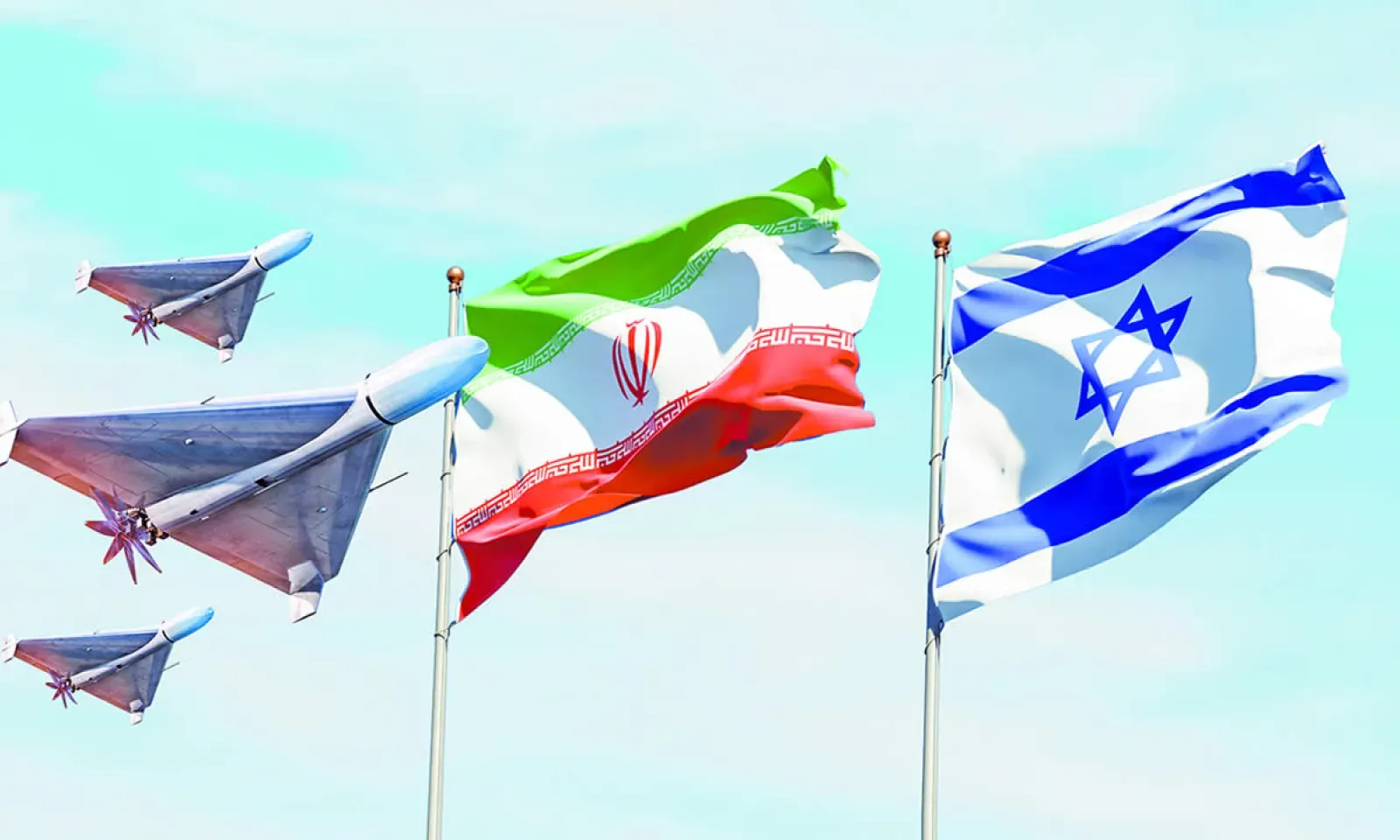
The war between Israel and Iran, which erupted over a week ago, has dominated both international and local headlines. The war began with Israel’s preemptive airstrikes on Iran’s nuclear and military infrastructure on June 13th, triggering Iran’s missile and drone retaliation. It has since plunged into an intense week of tit-for-tat military actions and mounting civilian tolls, with diplomatic efforts still in play—but active combat ongoing. Could a prolonged war between Israel and Iran trigger a global economic crisis, drive up inflation, or even tip economies into recession? And how insulated is Mauritius from these potential shocks? Stakeholders weigh in on the growing risks and the possible geopolitical and economic ripple effects for small island nations like ours.
The simmering tensions between Israel and Iran erupted into full-scale war on June 13th, following a surprise Israeli airstrike campaign targeting key Iranian nuclear and military sites. Dubbed Operation Rising Lion, the offensive saw more than 200 Israeli aircraft and drones striking over 100 locations across Iran—including nuclear enrichment facilities in Natanz, Fordow, Isfahan, and military sites near Tehran.
The Israeli government, led by Prime Minister Benjamin Netanyahu, described the operation as a preemptive measure to dismantle Iran’s nuclear capabilities, citing growing concerns over Tehran’s uranium enrichment activities and recent findings from the International Atomic Energy Agency (IAEA) accusing Iran of non-compliance. Netanyahu claimed the strike was necessary to avert an “imminent nuclear threat.”

In a swift and forceful response, Iran launched a series of retaliatory attacks beginning late June 13th and into June 14th. Waves of drones and ballistic missiles rained down on Israeli cities, including Tel Aviv, Haifa, and Beersheba, leaving dozens injured and at least 24 dead. One of the most alarming attacks occurred when an Iranian Sejjil missile struck Soroka Medical Center in Beersheba, prompting emergency evacuations and sparking outrage.
Iran’s counteroffensive has escalated since, with missile and drone strikes continuing across Israeli territory, while Israel has intensified its bombing campaign, targeting additional Iranian military infrastructure and research facilities. Reports indicated that several high-ranking IRGC commanders and nuclear scientists have been killed.
On the other hand, diplomatic efforts to de-escalate the conflict have been underway in Geneva, led by European mediators, but Iran stated it will not enter negotiations while under active bombardment. Meanwhile, the U.S. signalled possible involvement, warning that further Iranian escalation may prompt direct American military action.
As the conflict enters its second week, the region remains on edge, with no ceasefire in sight and fears growing of a broader regional war.
Global Economic Impacts
What Are the Global Economic Impacts of an Iran-Israel War? Tahir Wahab, Chartered Accountant and Economic Observer, states that any war in the world brings its loads of chaos and losses. “For investors, it brings volatility and uncertainty. As tensions between Iran and Israel reach critical mass, the global economy finds itself on the brink of yet another geopolitical shock. Should the conflict escalate into a full-scale war with the involvement of US, the ripple effects will be profound impacting energy prices, trade routes, inflation, and investment flows,” he says.
“For a small and open economy like Mauritius, which is already grappling with structural vulnerabilities including the growing old age pension pressures and the economic imperatives to bring more taxes to the government coffers structural vulnerabilities and the need to create new pillars of the economy, the consequences could be dire”, he asserts.
However, underlines Tahir Wahab, the most immediate and far-reaching impact of the conflict between Iran and Israel would be a shock to global oil markets. “Already, the brent crude surged by more than 7% after news of the attacks broke, briefly moving above $75 (£55) a barrel to its highest level since April 2025. With over 20 million barrels of oil passing daily through the Strait of Hormuz, any closure or even partial disruption could send crude oil prices soaring the $100 per barrel. Analysts forecast that such a price spike could raise global inflation by 0.7 to 1.5 percentage points, pushing central banks to tighten policy in already fragile economic environments.”
Moreover, according to the Economic Observer, the region is a strategic hub for global shipping. “Rising war-risk insurance premiums, already tripled for vessels bound to Israel, will drive up transportation costs, further disrupting global supply chains, particularly for goods routed through the Indian Ocean. These disruptions could cascade into higher costs and slower deliveries worldwide, affecting everything from electronics to fertilizers.”
Global Recession
Tahir Wahab is of the strong opinion that if the war escalates further over time and with the involvement of US, there is 30 to 40% probability of a global recession. “For developing economies like Mauritius, this would hit especially hard as we will have no choice than to pay the price of oil at a higher price firstly and adding the shipping disruptions and heightened risks especially in the Indian ocean region with Diego Garcia, there will be an increase in shipping insurance costs as well. Equally, the risk of global inflation will also undoubtedly affect the retail, fisheries and agro-industry with higher cost of fertilizers.”
Moreover, Mauritius, affirms Tahir Wahab, which imports all its fossil fuels, could see energy prices soar. “This would ripple through public transport, logistics, and manufacturing, where energy-intensive sectors like textiles could see cost increases of 20–35%. Most importantly, Tourism, which contributes 9.0% of our GDP, could be decimated by higher airfares and reduced European travel with a possible contraction of around 15–30% drop in arrivals.”
What Can We Expect on the Oil Market? “The oil market is the fulcrum of this crisis. In the early days of the conflict, Brent crude jumped 7% to $74.60/barrel. But if the Strait of Hormuz is even partially blocked, a plausible scenario given Iranian naval capability, prices could breach $100/barrel within weeks,” utters the Economic Observer.
Mauritius population, he says, who currently pays about MUR 66.20 per Liter for petrol, could see that figure climb to MUR 75 or more under these conditions. “This price surge would not only hurt household budgets but also increase the cost of doing business across the board, from freight to fisheries to food processing. It’s worth noting that previous oil shocks have historically been precursors to global slowdowns, think 1973, 1990, and 2008. The same pattern could play out again, only this time with developing economies bearing more of the cost.”
Speaking about how might international investors react, Tahir Wahab declares that markets dislike uncertainty. “A full-blown war in the Middle East is the ultimate uncertainty. Institutional investors are already shifting toward safe-haven assets like U.S. dollars, gold, and U.S. Treasuries. This capital rotation is draining liquidity from emerging markets.”
He trusts that Mauritius is not immune as there are lots of Global Business Companies (GBCs) within our financial services sector, a flight of capital, either due to investor fear or repatriation, could pressure the rupee’s value.
What’s at stake for Mauritius?
For Tahir Wahab, the potential escalation of a war between Iran and Israel is more than a regional conflict, it’s a global economic hazard, especially for small, import-dependent economies like Mauritius.
“Mauritius enters this geopolitical crisis already facing significant challenges with public debt at 90% of GDP, stagnating growth, and a vulnerable tourism sector. A conflict-induced external shock could turn the balance from strain to crisis. To withstand the shock, Mauritius must start taking pre-emptive measures to create energy Resilience possibly by fast-track renewable energy developments and negotiate fixed-price contracts to hedge against future oil spikes. We should also re-look at our tourism diversification by Increase market share from Africa and develop crisis insurance schemes for local tourism operators,” he affirms.
Most importantly, he declares, we should start a strategic stockpiling to secure reserves of critical imports like fuel, fertilizer, and grain to buffer short-term supply shocks. “Therefore, crisis-proofing the economy could reduce recession risk but it requires I think immediate action.”
Geopolitical ripple effects

If the conflict between Iran and Israel were to escalate into a full-scale war, what would be the immediate and long-term consequences both regionally and globally? According to Abdallah Goolamallee, Geopolitical and Communication Analyst, the immediate effect would mainly concern instability in the Middle East. “Immediate effect would concern oil prices which have already soared to their highest level in months; the US and EU stocks plunged; and the US and German bonds rallied as investors sought safety amid the market turbulence. The long-term effect would be that the escalation could lead to a Nuclear War and World War 3,” he utters.
Considering both nations’ strategic roles in the Middle East, Abdallah Goolamallee trusts that such a conflict would affect international trade routes. He also believes that the global energy markets are certainly vulnerable to disruptions caused by a potential Israel-Iran conflict, especially with regard to Strait of Hormuz activity.
“Much of the world’s oil and other key commodities such as natural gas pass through busy sea lanes in the Middle East, including the Strait of Hormuz. The strait, a narrow waterway separating Iran from the Gulf states, links the Arabian Sea to the Indian Ocean. It is a conduit for one-third of the world’s seaborne oil supplies, channelling roughly 21 million barrels every day. At its narrowest point, it is 33km wide. Shipping lanes in the waterway are even narrower, making them vulnerable to attack. The conflict between Israel and Iran has revived a decades-old question of whether Tehran will close the maritime chokepoint, triggering an oil price rally. Many reports suggest that Iran is considering closing the strait if the conflict with Israel intensifies. Closing the Strait of Hormuz could push oil prices above $100 per barrel according to Goldman Sachs,” he asserts.
Maritime security and regional diplomacy
If the United States becomes militarily involved and activates its base at Diego Garcia, should the Indian Ocean region brace for rising geopolitical tensions? Could it impact maritime security or regional diplomacy? “Diego Garcia would be almost certain to play a crucial role in any future American attacks on Iran. Recently, the US has had a squadron of B-2 bombers at its base on the island of Diego Garcia. While the island is some 2,400 miles from Iran’s southern coastline, their location on Diego Garcia would put them well within striking range of Iran. The US would be able to sustain military operations from Diego Garcia more efficiently.”
Diego Garcia, he explains, was crucial to the US-led so-called “war on terror” and the US military used the island to launch attacks on Afghanistan after 9/11, and on Iraq during the 2003 invasion. “The Iranian Navy intercepted a British destroyer in the northern Indian Ocean meant to help guide Israeli missiles toward Iranian territory. The destroyer was detected by Iranian intelligence systems Friday night and warned by combat drones before it could advance toward the Persian Gulf.”
However, he declares, under the terms of Sir Keir’s £30 billion Chagos deal, the UK must inform Mauritius if the base is used to launch an attack on a third country. “The text of the treaty says that Britain “agrees to expeditiously inform Mauritius of any armed attack on a third state directly emanating from the base on Diego Garcia”.”
Could an increased military activity in the Indian Ocean strain diplomatic relations between regional powers like India and China? Abdallah Goolamallee asserts that Israel’s attack on Iran Is a geopolitical blow for India. “India is caught between Iran and Israel. Iran serves as India’s conduit to Central Asia. India has invested billions in Iran’s Chabahar port – a competitor to Gwadar port in Pakistan – to establish a direct link with Central Asia. Central Asia is crucial for India, not only regarding energy security but also due to its abundance of rare earth minerals, but India does not share a direct border with the region, limited trade potential. The Israel-Iran conflict will jeopardize India’s connectivity plans and impede the long-anticipated progress of the International North-South Corridor.”
The Iran-Israel strikes, he affirms, will put India’s energy security and economy at risk. “India is highly dependent on oil imports, with over 80 percent of its crude oil supply coming from the West Asia region, including Iran and other Gulf countries. On the other hand, China will lose big In Israel-Iran conflict. China’s increasing dependency on energy imports from across the Middle East, not just Iran, may make it one of the biggest losers in the conflict between Israel and Iran. A few years ago, it seemed China’s position in the Middle East was secure. Beijing successfully brokered the normalization of relations between Saudi Arabia and Iran, creating the tantalizing possibility of a breakthrough peace deal and the diplomatic prestige long sought by China.”
Should the US and its allies intervene, could we see an escalation into a broader NATO–Russia standoff, considering Moscow’s ties to Iran? According to the Geopolitical and Communication Analyst, the escalation of Israel-Iran war can lead to broader conflicts and ultimately to World War 3. “That’s taking this conflict to extreme which is not to be undermined. Russia and China have been very prudent presently. But Russia’s ongoing conflict with the West and NATO through the Ukraine conflict is also a major conflict that can create sparks for broader conflict leading to a Nuclear War. USA ongoing isolating China can also create geopolitical reactions. And the outcome might be an eventual military alliance of Russia China Iran vs NATO,” he asserts.








